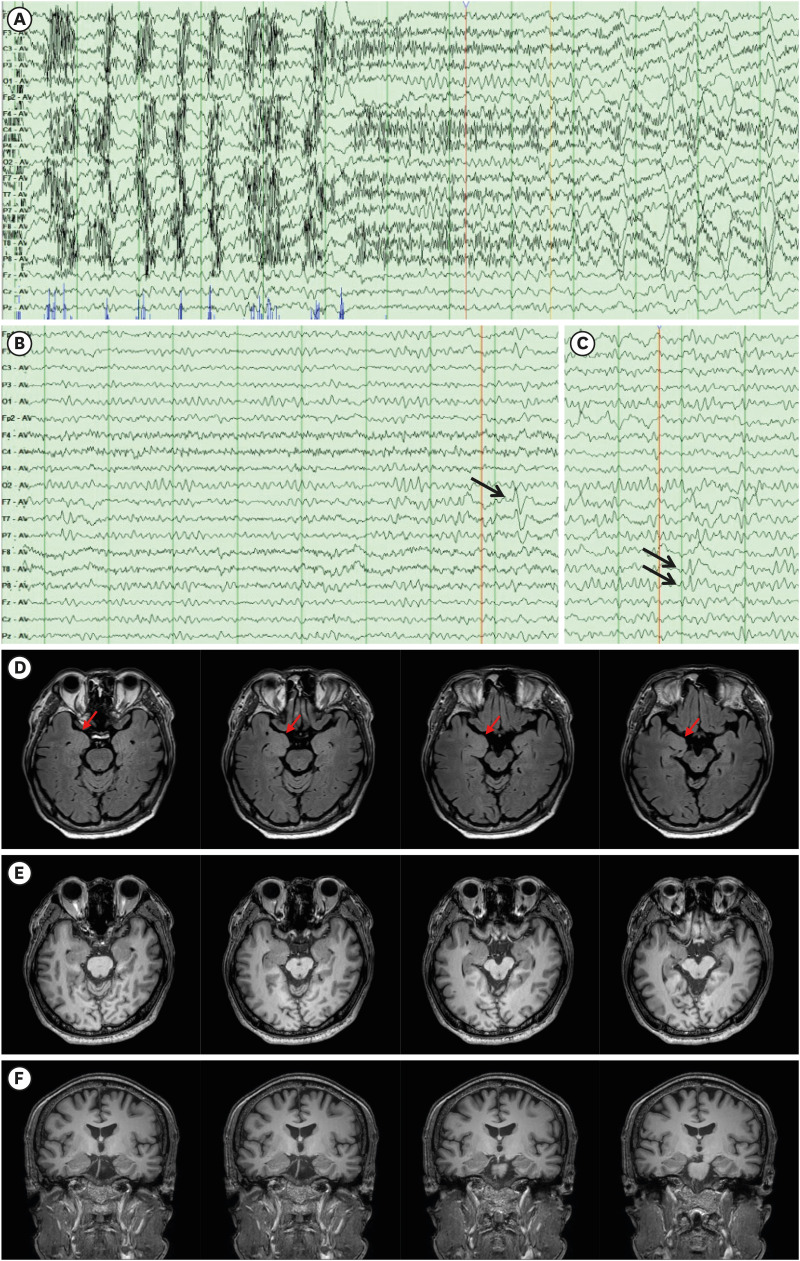Transient Epileptic Amnesia With Amygdala Enlargement Presenting to a Dementia Clinic.
Dementia and neurocognitive disorders
Pub Date : 2022-07-01
Epub Date: 2022-07-26
DOI:10.12779/dnd.2022.21.3.103
引用次数: 0
Abstract
Transient epileptic amnesia (TEA) is a distinct syndrome of late-onset limbic epilepsy of unknown cause, typically occurring in old age. It is an important cause of memory loss in older people because it could be treatable. However, it is often mistaken for neurodegenerative disease, transient global amnesia (TGA), cerebrovascular disease, and functional amnesia because amnesia is the only manifestation in some patients, unaccompanied by symptoms such as olfactory hallucination, motor automatisms, or brief unresponsiveness.1 In some patients with TEA, suspected causative abnormalities are detected by magnetic resonance imaging (MRI). These most commonly involve the mesial temporal lobes,2 which might provide some hints to clinicians in dementia clinics for diagnosing TEA. Here, we report the case of a patient with TEA accompanied by amygdala enlargement who presented to a dementia clinic.

一过性癫痫性健忘症伴杏仁核增大到痴呆诊所。
本文章由计算机程序翻译,如有差异,请以英文原文为准。
求助全文
约1分钟内获得全文
求助全文

 求助内容:
求助内容: 应助结果提醒方式:
应助结果提醒方式:


